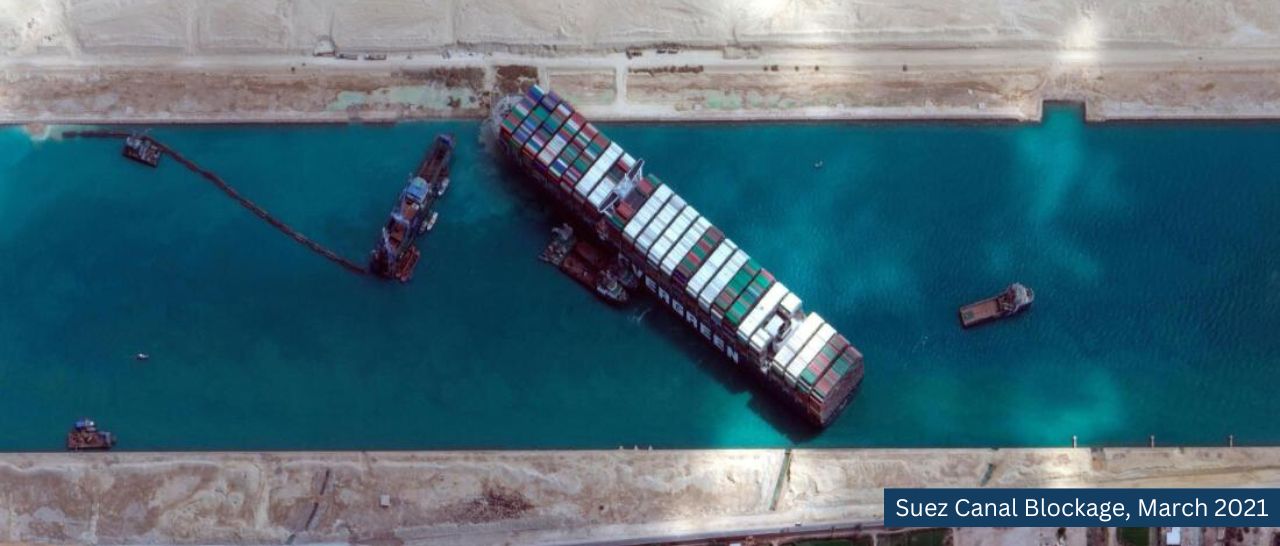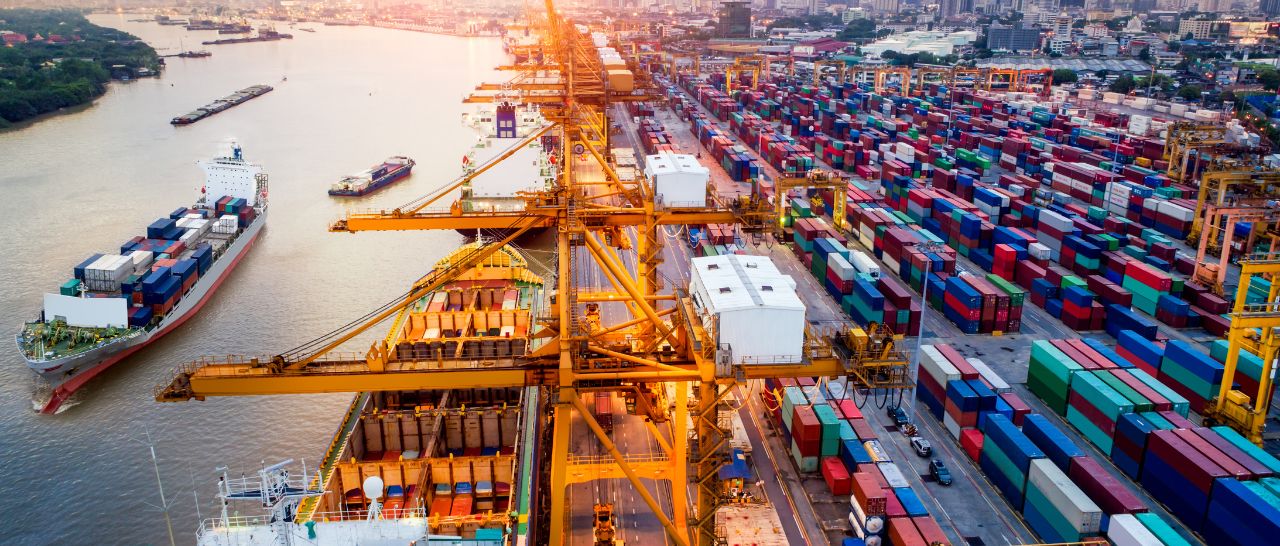Securing Global Trade: The Critical Role of Marine Cargo Insurance — by Urvin Luximon
Catégorie : Articles
In our global economy, where goods journey across oceans, Marine Cargo Insurance serves as a crucial shield against the unpredictable nature of maritime transportation. Recent events across the world have had a critical role, as businesses contend with ever-evolving risks, from geopolitical tensions to climate change-induced disruptions.
The Suez Canal Blockage of 2021 serves as a reminder of the perils faced by marine cargo. When the Ever Given, one of the largest container ships in the world, ran aground, it not only halted billions of dollars’ worth of trade but also highlighted the vulnerability of global supply chains. Companies reliant on timely deliveries found themselves struggling with delays and incurred substantial losses. Marine Cargo Insurance proved indispensable in mitigating these financial impacts, covering expenses related to cargo delays, spoilage, and rerouting.

Geopolitical tensions further highlight the need for robust insurance coverage. Increased trade disputes and territorial conflicts can lead to disruptions in shipping lanes, exposing cargo to risks of piracy, seizure, or confiscation. For instance, the escalating tensions between the United States and China have prompted concerns over potential disruptions in maritime trade routes, necessitating comprehensive insurance policies to safeguard against such contingencies.
Moreover, the intensifying effects of climate change present a formidable challenge to marine cargo transport. The rise in extreme weather events, such as hurricanes and cyclones, poses significant risks to vessels and their precious cargos. In 2019, hurricane Dorian affected the Bahamas and caused havoc on maritime operations, causing widespread damage to ships and port infrastructure. Marine Cargo Insurance played a pivotal role in facilitating swift recovery efforts, covering losses incurred due to vessel damage and cargo losses.
Real-life examples further emphasize the importance of adequate insurance coverage in mitigating unforeseen risks. Take, for instance, a scenario involving the transportation of perishable items like fruits or vegetables bound for global markets. A sudden refrigeration system failure during transit could lead to spoilage, resulting in substantial financial losses for the exporter. Marine Cargo Insurance provides recourse in such cases, reimbursing the insured for the value of the damaged goods and associated expenses.
Similarly, instances of cargo theft highlight the need for robust insurance protection. Organized criminal syndicates often target vulnerable shipments, pilfering valuable commodities on their way to their destinations. In such cases, Marine Cargo Insurance serves as a crucial safety net, offering compensation for stolen goods and facilitating recovery efforts.
In the midst of the Red Sea’s strategic importance, lies a lesser-known aspect of its significance: the challenges it poses to Marine Cargo Insurance. The Red Sea, a vital artery for global trade, has witnessed numerous conflicts and geopolitical tensions over the years. These tensions, compounded by piracy, political instability, and the ever-present risk of maritime accidents, have made insuring cargo passing through these waters a complex endeavour. With the potential for disruptions to trade routes and the constant threat of peril, insurers navigate a delicate balance between mitigating risk and ensuring the smooth flow of goods. As conflicts grow in this important region, marine cargo insurers remain vigilant, adapting their policies and strategies to safeguard shipments and protect the interests of traders worldwide.

Regional Loss Figures and Premium Statistics
- Africa. Recent data shows that Africa accounts for approximately 7% of global marine cargo losses. Premiums in the region have seen a steady increase, reflecting heightened awareness of maritime risks among African businesses.
- Asia. It experiences the highest number of marine cargo losses globally, constituting nearly 40% of total losses. Premiums in Asia have surged in response to growing trade volumes and heightened risks, particularly in regions prone to natural disasters and political instability.
- Europe. The continent records around 20% of global marine cargo losses, with premiums reflecting the region’s significant maritime trade activity. Insurers in Europe have implemented innovative risk management strategies to mitigate losses and ensure the resilience of supply chains.
- North America. It accounts for approximately 25% of global marine cargo losses, driven by its extensive trade networks and exposure to severe weather events. Premiums in North America have risen steadily, reflecting the need for comprehensive insurance coverage in a rapidly changing risk landscape.
- South America. South America experiences a relatively lower proportion of marine cargo losses, which is around 8% of the global total. However, premiums in the region have been increasing steadily, fuelled by growing trade volumes and the need to address vulnerabilities in supply chains.
In conclusion, Marine Cargo Insurance maintains its significance amidst the unpredictable nature of today’s global trade environment. With businesses confronting diverse risks, comprehensive insurance coverage offers indispensable protection against unforeseen challenges. By prioritizing resilient insurance policies, companies fortify their precious cargo and bolster the resilience of their supply chains against adversities.
*Urvin Luximon is CII-qualified (Dip CII) and, in our Broking Team, has a special focus on Marine matters. Given our extensive experience in handling Marine queries from the markets we are involved in, and our strong network of Reinsurers and Specialist Underwriters, we are at your disposal to provide solutions for your Reinsurance needs in Marine.



Comments are closed here.